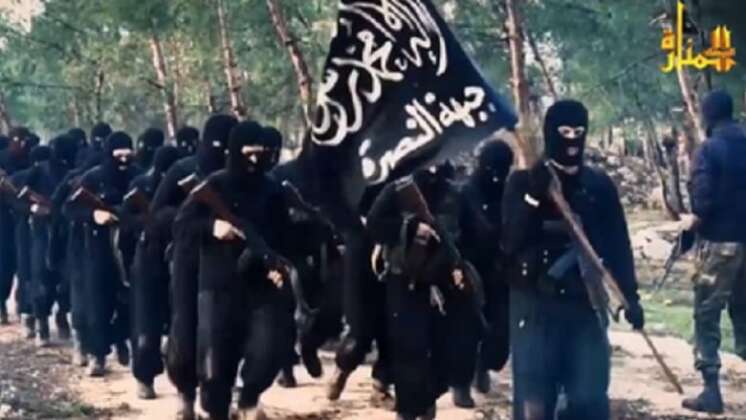News
Middle East Escalation: Why Turkey and its Proxies Could Be the First to Join a Regional War on Israel’s Side
Following the outbreak of widespread hostilities between the Gaza-based Hamas militia group and Israel on October 7, which commenced with mass Palestinian offensives into Israeli held territory, the possibility of escalation into a wider regional conflict has been widely raised. Hamas’ demonstration of unprecedented military potential and capture of multiple Israeli military facilities and large arsenals including hundreds of tanks and armoured vehicles has fuelled speculation that its strategic partner the Lebanon-based Hezbollah militia could seek to enter the war to capitalise on the chaos within Israel. Hezbollah and Israel exchanged fire from October 8, and on October 9 the militia pledged to respond after at least one of its servicemen was killed in the border region by Israeli fire. The militia remains the world’s most powerful non state military force, with several times the combat capacity and significantly superior training to Hamas forces, and is the only force to have dealt Israel a military defeat in its history in 2006. While Israel has already launched unprecedented air strikes on Gaza, further escalation of clashes between its forces and Hezbollah would raise the possibility of the conflict expanding from Gaza and Israel into both Lebanon and Syria – where Hezbollah and several more minor allied militia groups are firmly entrenched.

While assessments of the possibility of escalation have primarily focused on the possibility of Iran or the United States being drawn into war to support Hezbollah or Israel respectively, it remains perhaps more likely that another actor, namely NATO’s sole Middle Eastern member state, could be drawn into the conflict on the side of Israel. Turkey is the only state actor other than Israel to have engaged in combat operations against Hezbollah since the 1980s, and continues to place northern Syria’s Idlib govern ate under its influence through support for a wide range of jihadist insurgent groups such as the Al Nusra Front and East Turkestan Islamic Party. These were at the forefront of Turkish and Western efforts to overthrow the Syrian government in the 2010s, which Hezbollah and later Iran and Russia intervened to thwart relegating the militants to operating from an enclave in Syria straddling the Turkish border. While Turkish backed terror groups have launched multiple attacks against Syrian and Russian targets into the 2020s, and frequently clashed with Hezbollah units as well, the escalation of Hezbollah-Israeli hostilities could provide an optimal opportunity for them with Ankara’s backing to press into Syria and thus join the war effort. Such militant groups have since 2011 had Turkish special forces units embedded within their ranks, and have frequently received Turkish air and artillery support when engaging the Syrian Army or its allies.

Turkey and Israel have a long history of strategic partnership both within and outside the framework of Ankara’s position as a leading NATO member, with Israel having previously operated its only major air base beyond its territory on Turkish soil and helped modernise much of the Turkish Army and Air Force inventories. The two also share common adversaries in Hezbollah, Syria and to a lesser extent Iran, although unlike Israel Turkey and its proxies have also shown a strong willingness to attack Russian forces in Syria where Israel has refrained from doing so. U.S. envoy to the coalition fighting the Islamic State, Brett H. McGurk previously highlighted that “Idlib Province is the largest Al Qaeda safe haven since 9/11,” with jihadist militant forces based there numbering in the high tens of thousands and having benefitted from Israeli and to a greater extent Turkish air strikes during their engagements with Syrian and Hezbollah forces. During a previous Syrian, Hezbollah and Russian effort to reclaim Idlib and neutralise the terrorist presence there in early 2020, a massive Turkish intervention which involved shooting down Syrian aircraft deep within the country’s borders drew resources towards the northern regions, which Israel was able to capitalise on by escalating air strikes on Hezbollah affiliated targets in southern Syria. Should attentions be focused on conflict with Israel, it is highly unlikely that Turkey and the jihadist forces under its influence will not consider similarly capitalising on the opportunity to press their offensives into Syria – with Ankara continuing to state that the overthrow of the Hezbollah-allied government in Damascus is one of its objectives.












